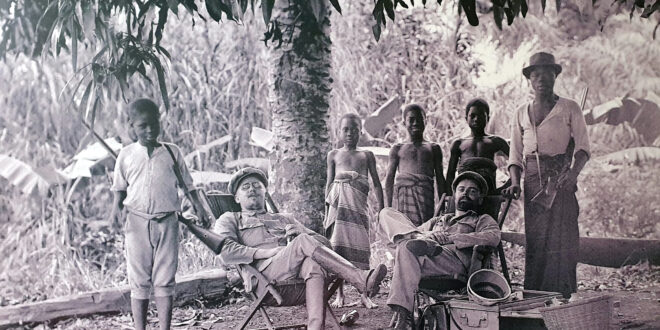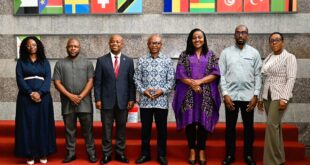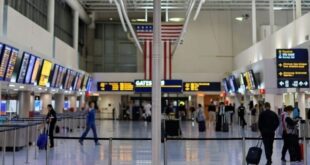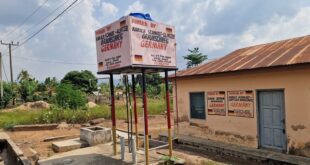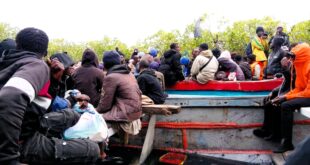Germany has once again ruled out reparations for colonial-era atrocities, a decision that has sparked outrage among Black German advocates and descendants of genocide victims in Africa.
The Initiative Schwarze Menschen in Deutschland (ISD), a leading Black German advocacy group, condemned the government’s stance as “deeply unjust and historically whitewashing.” The organization said Berlin’s reliance on the legal principle of nulla poena sine lege (“no punishment without law”) was “a fig leaf that trivializes colonial crimes and continues to devalue the suffering of Black people.”
The ISD also accused Germany of hypocrisy. “While the state rightly paid reparations to Holocaust survivors and to the State of Israel, it continues to deny such responsibility for colonial atrocities. This double standard shows clearly: the life and suffering of Black people is still valued less today,” the group said.
The government’s position was recently revealed in response to a parliamentary question from the Green Party and reported by Tagesspiegel. Berlin insists there was no applicable international criminal law at the time of colonial atrocities and argues that reparations “are not applicable in the context of Germany’s colonial past.”
Instead, the government avoids the term “reparations,” preferring phrases like “reconciliation” and “development aid” — widely seen as a strategy to avoid potentially massive legal claims.
The Herero and Nama Genocide
Germany’s colonial enterprise in Africa spanned Namibia, Tanzania (then German East Africa), Cameroon and Togo between 1884 and 1919. Atrocities were widespread.
In Namibia, German forces carried out the Herero and Nama genocide (1904–1908), killing an estimated 100,000 people through massacres, forced displacement and concentration camps.
In Tanzania, German troops brutally suppressed the Maji Maji uprising (1905–1907), in which as many as 250,000 Africans died, many from famine caused by scorched-earth tactics. In Cameroon, local populations were forced into labour on plantations and infrastructure projects, suffering harsh punishments, dispossession of land and widespread exploitation under German colonial rule.
Limited Acknowledgment
Germany formally acknowledged the genocide in Namibia in 2021 and pledged €1.1 billion in development aid over 30 years. But many descendants rejected the deal, saying they had been excluded from negotiations and that the package was no substitute for reparations. Critics often dismiss it as “crumbs” that fail to address land dispossession, looted cultural heritage and intergenerational trauma suffered by descendants.
Renewed Urgency
The debate gained momentum this year when Namibia marked its first official Genocide Remembrance Day on May 28. President Netumbo Nandi-Ndaitwah called for justice beyond symbolic recognition. The discovery of additional human remains at Shark Island, a notorious concentration camp site, has further fuelled calls for preservation and reparations.
ISD’s Demands
The ISD is demanding:
-
Full recognition of the Herero and Nama genocide as basis for reparations.
-
Direct financial compensation to descendants.
-
The return of looted cultural property and human remains, plus retroactive compensation.
-
A consistent decolonization of Germany’s remembrance culture and education.
“Reparations are not charity — they are a human right. Germany must act,” the group declared.
Pan-African Context
The ISD’s call echoes broader demands across the continent. In 2023, the African Union and CARICOM launched a Global Reparations Fund. With 2025 declared the AU Year of Justice for Africans and People of African Descent Through Reparations, Germany’s refusal is being closely scrutinized across Africa.
For many, the question is not about legal technicalities, but whether Germany is willing to extend the same moral accountability it embraced after World War II to its colonial crimes in Africa.
Adira Kallo
 THE AFRICAN COURIER. Reporting Africa and its Diaspora! The African Courier is an international magazine published in Germany to report on Africa and the Diaspora African experience. The first issue of the bimonthly magazine appeared on the newsstands on 15 February 1998. The African Courier is a communication forum for European-African political, economic and cultural exchanges, and a voice for Africa in Europe.
THE AFRICAN COURIER. Reporting Africa and its Diaspora! The African Courier is an international magazine published in Germany to report on Africa and the Diaspora African experience. The first issue of the bimonthly magazine appeared on the newsstands on 15 February 1998. The African Courier is a communication forum for European-African political, economic and cultural exchanges, and a voice for Africa in Europe.

